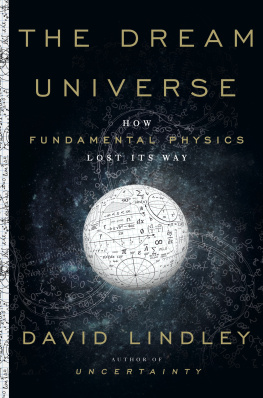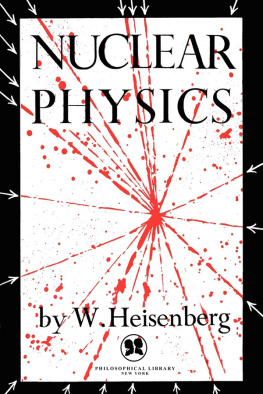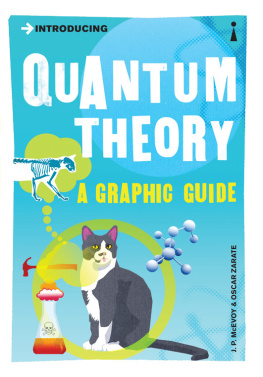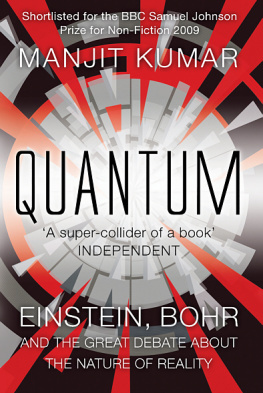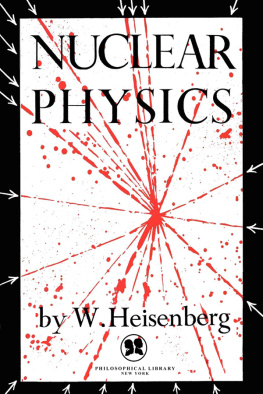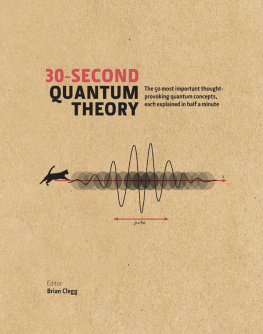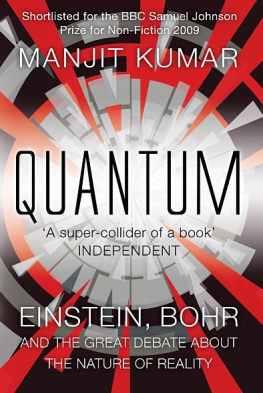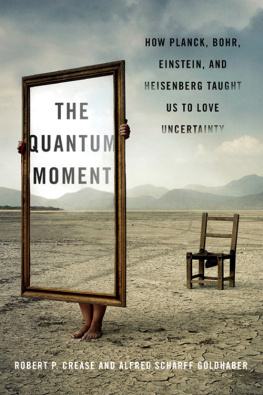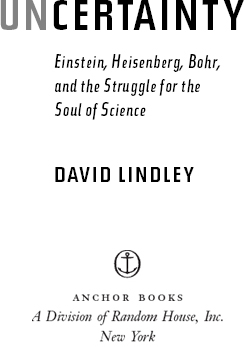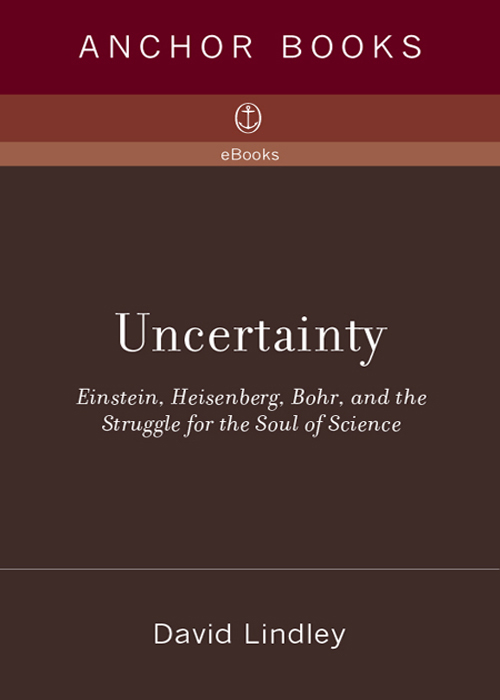
CONTENTS
He is the God of order and not of confusion.
Isaac Newton
Chaos was the law of nature; order was the dream of man.
Henry Adams
INTRODUCTION
I f science is the attempt to extract order from confusion, then in early 1927 it veered onto an unexpected path. In March of that year, Werner Heisenberg, a physicist only twenty-five years old but already of international renown, set down a piece of scientific reasoning that was in equal measure simple, subtle, and startling. Heisenberg himself could hardly claim he knew exactly what he had done. He struggled to find an apt word to capture the sense of it. Most of the time he used a German word readily translated as inexactness. In a couple of places, with a slightly different intention, he tried indeterminacy. But under the irresistible pressure of his mentor and sometime taskmaster Niels Bohr, Heisenberg grudgingly added a postscript that brought a new word onto the stage: uncertainty. And so it was that Heisenbergs discovery became indelibly known as the uncertainty principle.
Its not the best word. Uncertainty was hardly new to science in 1927. Experimental results always have a little slack in them. Theoretical predictions are only as good as the assumptions behind them. In the endless back-and-forth between experiment and theory, its uncertainty that tells the scientist how to proceed. Experiments probe ever finer details. Theories undergo adjustment and revision. When scientists have resolved one level of disagreement, they move down to the next. Uncertainty, discrepancy, and inconsistency are the stock-in-trade of any lively scientific discipline.
So Heisenberg didnt introduce uncertainty into science. What he changed, and profoundly so, was its very nature and meaning. It had always seemed a vanquishable foe. Starting with Copernicus and Galileo, with Kepler and Newton, modern science evolved through the application of logical reasoning to verifiable facts and data. Theories, couched in the rigorous language of mathematics, were meant to be analytical and precise. They offered a system, a structure, a thorough accounting that would replace mystery and happenstance with reason and cause. In the scientific universe, nothing happens except that something makes it happen. There is no spontaneity, no whimsy. The phenomena of nature might be inordinately complicated, but at bottom science must reveal order and predictability. Facts are facts, laws are laws. There can be no exceptions. The mills of science, like those they replaced, would grind exceeding small. And just as perfectly.
For a century or two, the dream seemed realizable. If scientists of one generation, building on the work of the last, could see that they had yet to achieve their ideal, they could equally believe that those who came after them would finish the job. The power of reason implied the ineluctability of progress. Science would become more grandiose, more encompassing in scope, yet at the same time more detailed, more scrupulous. Nature was knowableand if it was knowable then one day, necessarily, it would be known.
This classical vision, springing from the physical sciences, became in the nineteenth century the dominant model for science of all kinds. Geologists, biologists, even the first generation of psychologists, pictured the natural world in its entirety as an intricate but inerrant machine. All sciences aspired to the ideal that physics offered. The trick was to define your science in terms of observations and phenomena that lent themselves to precise descriptionreducible to numbers, that isand then to find mathematical laws that tied those numbers into an inescapable system.
No doubt the task was hard. If ever scientists were daunted by their ambitions, it was because of the sheer complexity of the machine they were trying to tease apart. Perhaps the laws of nature would be too vast for their brains to fathom. Perhaps scientists would find they could write down the laws of nature only to discover they lacked the analytical and calculational firepower to work out the consequences. If the project of absolute scientific comprehension were to falter, it would be because the human mind wasnt up to the task, not because nature itself was intractable.
And thats why Heisenbergs argument proved so unsettling. It targeted an unsuspected weakness in the edifice of sciencein the substructure, so to speak, a part of the foundation that had gone unexamined because it had seemed so self-evidently secure.
Heisenberg took no issue with the perfectibility of the laws of nature. Instead, it was in the very facts of nature that he found strange and alarming difficulties. His uncertainty principle concerned the most elementary act of science: How do we acquire knowledge about the world, the kind of knowledge that we can subject to scientific scrutiny? How, in the particular example Heisenberg took, do we know where some object is and how fast it is moving? It was a question that would have baffled Heisenbergs predecessors. At any time, a moving object has some speed and position. There are ways of measuring or observing these things. The better your observation, the more accurate the result. What else is there to say?
Plenty more, Heisenberg discovered. His conclusion, so revolutionary and esoteric, has been expressed in words that have become almost commonplace. You can measure the speed of a particle, or you can measure its position, but you cant measure both. Or: the more precisely you find out the position, the less well you can know its speed. Or, more indirectly and less obviously: the act of observing changes the thing observed.
The bottom line, at any rate, seems to be that facts are not the simple, hard things they were supposed to be. In the classical picture of the natural world as a great machine, it had been taken for granted that all the working parts of the machinery could be defined with limitless precision and that all their interconnections could be exactly understood. Everything had its place, and there was a place for everything. This had seemed both fundamental and essential. To have a hope of comprehending the universe, you had first to assume that you could find out, piece by piece, what all the components of the universe were and what they were doing. Heisenberg, it seemed, was saying that you couldnt always find out what you wanted to know, that your ability even to describe the natural world was circumscribed. If you couldnt describe it as you wished, how could you hope to reason out its laws?
The implications of Heisenbergs discovery were obscure. And it came on the heels of an equally remarkable, equally perplexing insight that Heisenberg had delivered just two years earlier, when in a visionary flash he saw how to build the theory that became known as quantum mechanics. While the rest of the physics world struggled to keep up, Heisenberg, with a young mans purity of vision, was eager to forge ahead, rewriting the fundamental rules of physics in an abstruse new theoretical language that even he could not yet claim he fully grasped. But Niels Bohr, a man given to slow and sometimes exasperatingly careful reflection, saw the need to assimilate the new to the old. The difficult but essential task, he saw, was to make sense of the new quantum physics without throwing overboard the hard-won successes of the previous era. He and Heisenberg wrangled painfully over how best to portray the emerging, still controversial science.
Next page

